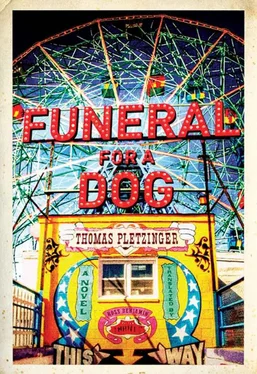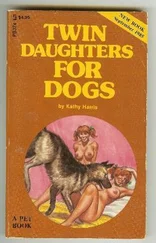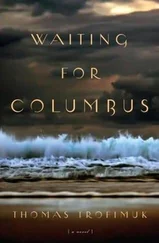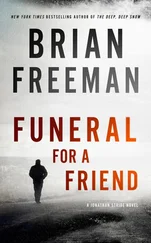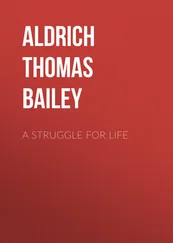Interview (main informant two)
MANDELKERN: Why isn’t your name actually on the book? You did draw the pictures, after all.
KIKI: I turned Svensson’s story into pictures, Daniel, that’s something else entirely. They’re still his stories.
M: And the other pictures here? So when is a picture your picture?
K: I listen to people and make something out of their words. Only when something from myself ends up on the canvas, from my own colors, does the canvas become my picture. Most of the pictures here are mine, just not the ones from Svensson’s book. And then my name is on the bottom too. Have you seen the Astroland pictures?
M: In the study?
K: Nursery. The Astroland pictures are my own. Mine alone. I’m the sole creator of those pictures, they’re nothing but my perspective. For those pictures I listened to myself. Svensson wouldn’t see himself like that, above all he wouldn’t describe the situation like that, on the slide and without any pants on. But Svensson’s book is his. He sat next to me and dictated his story directly into my brush.
M: So it’s a commissioned work.
K: I would call it artistic symbiosis, you know, Zusammenarbeit , collaboration.
M: Can you explain that to me?
K: The Polaroid on the fridge, have you seen it? Three people: Felix, Tuuli, and Svensson, plus the dog. I’ve never been to Finland, Daniel, but Svensson has told me the story, the story of that New Year’s Day in Finland. That they were in love and were certain it would stay that way. But it didn’t, you know? The picture is called “Shitty City.” The three of them were Borromean rings, though they didn’t know it yet at that time. When I began to paint the book, I knew it. That’s why Svensson’s not laughing anymore in the picture. Tuuli’s not laughing, because she made the wrong decision, but that’s my personal opinion, don’t tell her I said so. I’ve seen what has become of the people in this picture. Felix isn’t laughing in the picture, because he died. The work of art knows the past, the present and the future.
M: Did you know Felix Blaumeiser?
K: No. But we found him, over there at the yellow house, right there below the church. At his parents’ house on the other side. I was at his funeral, and I live with Dirk Svensson. Believe me, Daniel, Svensson has told me about Felix, many, many times. M: I thought you were a photographer. All the pictures of the gulls and Lua, for example.
K: Photos never show what you want to see. For that you need your own paints and your own brush.
What exactly are Borromean rings?
On the narrow road through the woods toward Osteno: I’m carrying two garbage bags, Kiki one. The road must have been drivable once, but the woods have reclaimed it, we step over nettles and vines, dried branches, twice there are tree trunks lying across the path. Kiki knows the fauna and flora of Lombardy, she points to the plants on the path, she explains to me the cypresses and crickets, she gestures to an orange tree on the steep slope above us and an African fan palm in the ravine. Walking ahead of me Kiki points to a waterfall I missed the first time, Bella’s asleep on her back. I ask about the Borromean rings and how they work, but Kiki says that I should first take a look at the swallows. She explains to me the birds’ behavior before the approaching storm, which Svensson’s been talking about for days, she explains to me the subtropical underbrush. Last time I was on this road I had to throw up twice, I think, and that it’s simpler now following Kiki and Bella, the honest chaos of her languages, her brown curls with gray strands in them, her pointing finger (she shares Svensson’s gestures, she shares his life). This time my stomach growls with hunger. When we arrive at the end of the road, we throw the plastic bags into the heap. The garbage has been lying here for days, flies are circling the cans (plastic bottles, paper, yogurt cups, fish heads, orange peels, etc.). The fox, says Kiki, pointing to the torn-open bags and the kitchen scraps. The garbage gets collected only on Wednesdays, she explains, there are raccoons here too. The makeshift bench is impossible to use (fish smell, rotten fruit). There’s a red Volkswagen family car with an Italian license plate parked on the gravel, Kiki pulls the key out of the pocket of her green dress and opens the back (MIT1-4737). In the trunk are paint tubes and plastic bottles, a chewed-up baseball, a wool blanket and dog hair. On the backseat a child safety seat, next to it a few canvases, wrapped in spattered sheets. Here, says Kiki, two cases of beer, can you give me a hand, I’ll take the bags. As I lift the beer out of the trunk, I ask again about the Borromean rings. Nothing special, says Kiki, she always compares Svensson and Tuuli and Blaumeiser with these rings. Three linked hoops, one of those mind-fucks, but if one of them is removed, the other two aren’t linked anymore either, get it? Two of them don’t work without the third. I don’t understand: could she draw it for me? Natürlich, says Kiki, in the house sometime (I remember a quote from Nigel Barley’s The Innocent Anthropologist: Notes from a Mud Hut : “I was quietly convinced that I would return having learned and understood nothing”).
master of chairs, master of lights
Now two more boats are moored to the dock in front of Svensson’s ruin (Pike Machine and Valsolda), torches are shining on the way to the shore, they stand in a row on the dock, candles on the stone tables, clouds of mosquitoes and moths around the light. Svensson has broken his rickety chairs into firewood and thrown it on the pyre he built yesterday (the screams of the animals). A multicolored string of lights is hanging in the oleander. Kiki leads me around: this is the journalist Daniel, ciao Andrea, buona sera Signora Gobbi. Nice to see you, she says in English again and again, she kisses and hugs and shakes hands. This is Daniel, says Kiki, this is Francesca (the waitress from the Bar del Porto). We’ve met, says Francesca. Yes, I say, and shake hands and get kissed and pulled along. The blind Prosecco drinker with the long ears, who greeted me like Hitler the day before yesterday in the Bar del Porto, is named Mussolini and is Francesca’s father. Forza Roma, he says, he’s the village butcher. That’s not his name, says Kiki as we walk on, though he’s just as old. The paint-and-lacquer man Carlo Materazzi is playing Ping-Pong with the carpenter Luigi Gobbi, they shout, they gesticulate, and Luigi’s mother opens beer bottles (I saw her in the cemetery). The guests drink and chatter and argue. Kiki and I walk around the tables, I try to remember the names: the veterinarian Pompeo Castelfranco, Donata Buti from the dry cleaner’s, the lawyer Pelegrino Rossi. The official from the Guardia di Finanza is in civilian clothing today, he drinks and drinks and gives a thumbs-up when Kiki refills his glass (his outstretched thumb, the bow wave of his boat on the day of my arrival). A bald guy is actually playing mandolin, Kiki explains that he’s Andrea, the shipbuilder, it must have been twenty years ago that he built Macumba , back then the sailboat was named Giulia , after Felix Blaumeiser’s mother. The bonfire is burning, the fishermen Marco and Alessandro are grilling fish, the cypresses over them paper cuttings against the dark blue sky (the glow of the yellow church on the other side). Lua is lying in the aroma of the good meat and in the warm looks of the guests and isn’t coughing anymore, he has closed his eyes. Samy is kneeling next to him and smoothing the speckled fur with Kiki’s brush, he’s giving Lua beer from the plastic bottle (Lua will be drunk for the last time). What’s the occasion, I ask, and Kiki says nichts . There doesn’t have to be a reason for everything. Tuuli is sitting next to the two of them, smoking and observing her son, she’s observing the people under the oleander, she’s observing me. This is Daniel Mandelkern, says Kiki yet again, and a suntanned man in a linen suit stands up from his rusty metal chair, tips his straw hat, and shakes my hand. It’s a pleasure, he says, Claasen is my name.
Читать дальше
